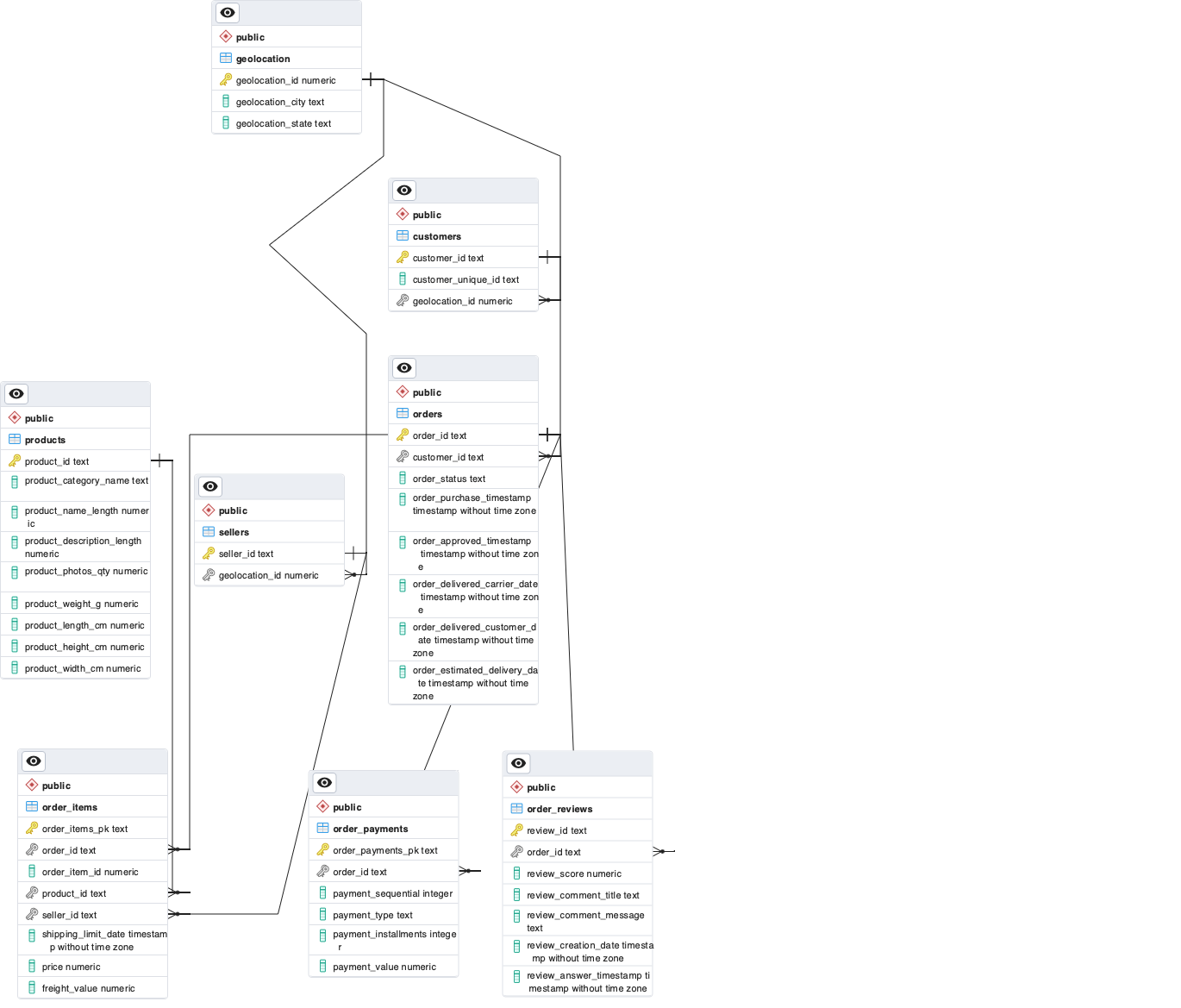This project's objective is to provide a POSTGRESQL database with a set of tables that can be used to analyze the brazilian e-commerce market.
Data source is obtained from Kaggle.
Another data source which should be named as cities.csv is obtained from this repository (br-city-code.csv).
All the csv files are stored in the data/raw folder.
This is the ERD diagram of the POSTGRESQL database that was created after preprocessing the data.
To run the project, follow these steps:
- Download or clone the project from the GitHub repository.
- Navigate to the project root directory in your terminal.
- Create a .env file in the project root directory and copy the following information into it:
POSTGRES_DB=brazil POSTGRES_USER=main POSTGRES_PASSWORD=password POSTGRES_PORT=5432 POSTGRES_HOST=host.docker.internal PGADMIN_DEFAULT_EMAIL=exampleuser@example.com PGADMIN_DEFAULT_PASSWORD=password
- In the terminal, run the command
docker-compose upto build and start the Docker containers. - Once the Docker containers are up and running, you can analyze the PostgreSQL database by opening the pgAdmin client in your web browser and signing in using the default email and password specified in the .env file.
- To connect the pgAdmin client to the PostgreSQL server, use the host name address obtained by running the command
docker inspect postgresql | grep "IPAddress"in your terminal. Use the other information from the .env file to complete the server connection details.
.
├── assets
│ └── DataBase-ERD-Diagram.png
├── data
│ ├── preprocessed
│ └── raw
├── database
│ ├── utils
│ │ └── __init__.py
| | └── alter_tables_query.py
| | └── create_tables_query.py
│ ├── create_database.sql
│ └── create_db.py
├── load
│ ├── __init__.py
│ └── insert_db.py
├── transform
│ ├── transform.py
│ └── utils.py
├── .env
├── .gitignore
├── Dockerfile
├── README.md
├── analysis.py
├── docker-compose.yml
├── main.py
└── requirements.txt
